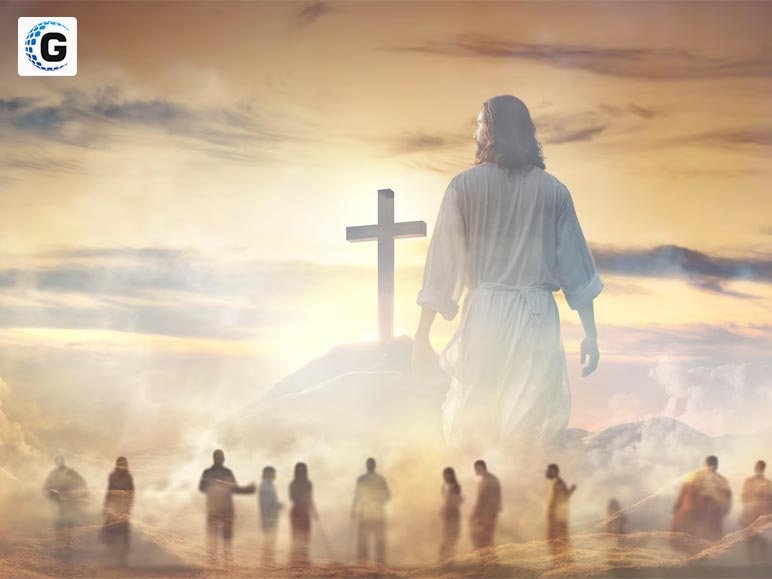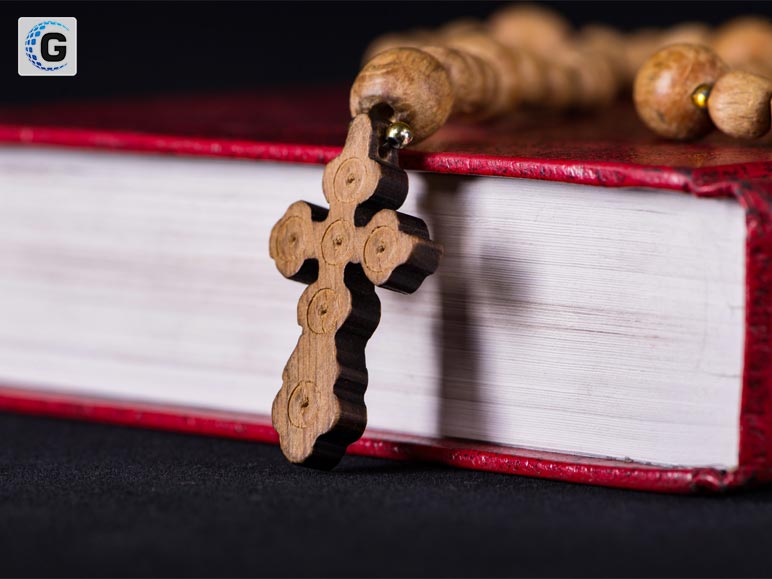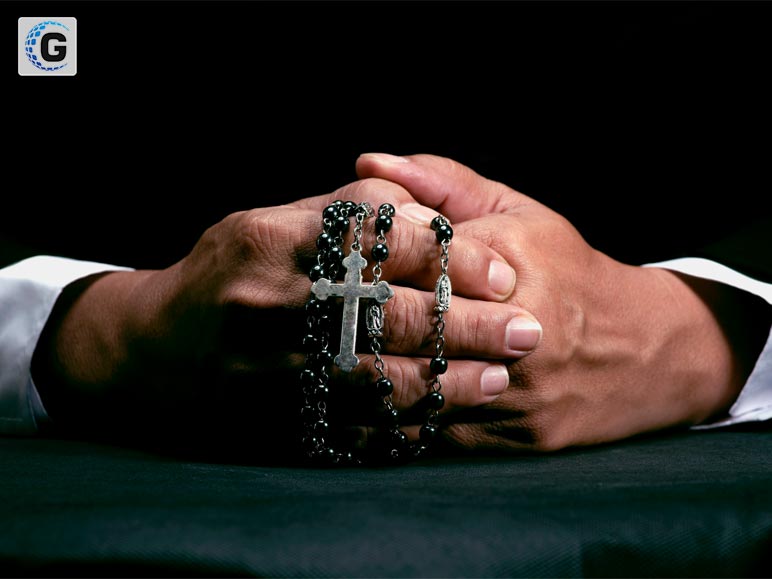We all say Happy Easter on Easter day but do you know what that means? Jesus Christ, a key figure in the history of Christianity, commands reverence from millions globally. The profound impact of his teachings, life, and subsequent dissemination of Christianity resonates through the annals of human history.
This exposition delves into the intricate facets of Jesus’ life, his paramount significance in Christianity, and the intricate mechanisms facilitating the dissemination of this faith. It traverses crucial domains such as Christianity, the venerated Jesus Christ, and the esteemed Mother Mary.
The Life Of Jesus Christ

When we give Happy Easter wishes what actually people mean? Jesus, alternatively recognized as Jesus Christ or Jesus of Nazareth, assumes the esteemed position of the Son of God and the prophesied Messiah in Christian doctrine.
Hailing from Bethlehem and born to the Virgin Mary, Jesus, according to Christian belief, led a modest existence before embarking on his public ministry at approximately 30 years of age. His teachings, often encapsulated in parables, underscored themes of love, forgiveness, and the imminent advent of the Kingdom of God.
Key Aspects Of Christianity

Christianity, an expansive global faith, traces its roots to the profound teachings of Jesus Christ. Its fundamental tenets encompass belief in the Trinity (Father, Son, and Holy Spirit), the divine nature of Jesus, salvation through unwavering faith, and the imperative to propagate the gospel.
Adherents of Jesus, known as Christians, congregate for worship, prayer, and communal bonding in ecclesiastical establishments spanning the globe. If you want to know about what people mean when they send you Happy Easter images.
The Spread Of Christianity

The propagation of Christianity finds its genesis in multifaceted factors, prominently featuring the endeavors of Jesus’ disciples and apostles post-his crucifixion and resurrection. In order to understand what people mean when they say Happy Easter wishes you need to know more details about this.
The Apostle Paul assumes a pivotal role, embarking on missionary expeditions, establishing Christian communities, and composing epistles that subsequently constitute the New Testament. A seminal juncture materialized with the conversion of Roman Emperor Constantine in the 4th century.
The issuance of the Edict of Milan in 313 AD accorded legal status to Christianity, fostering subsequent imperial endorsements and culminating in its designation as the state religion in 380 AD. Missionaries, as exemplified by St. Augustine, played instrumental roles in evangelizing diverse regions.
What’s Easter?

In celebrating the resurrection of Christ, Easter stands as a solemn occasion. The Happy Easter wishes resonate widely, yet the etymology of Easter is intricate. In the Greek Gospels, “pascha” denoted the Hebrew “pesach,” meaning Passover.
Latin adopted this as “pascha.” However, English diverged, tracing its roots to St. Bede’s attribution to “Eoster,” the Teutonic goddess symbolizing the rising light of spring. We celebrated Happy Easter 2023 last year and now we need to know what it is.
Linguistic Evolution: From Pascha To Ostern
European languages derived from Latin echo “pascha,” as seen in Italian (“pasqua”), Spanish (“pascua”), and French (“paques”). English, influenced differently, associated with the Old German plural “ostern,” reflecting dawn or east. Through linguistic evolution, Easter evolved to signify that Sunday morning in spring when Christ, the true light, emerged.
The Melody Of Greetings: “Happy Easter”
Despite potential pagan undertones, contemporary usage unequivocally ties Easter to the resurrection of Jesus Christ. Advocacy for alternative greetings, such as “Happy Resurrection Day,” merits consideration without asserting superiority. Rigidity risks diminishing the spirit of charity inherent in the exchange of Easter greetings.
In periods of strength, the Church has adeptly assimilated non-Christian practices, imbuing them with Christian significance. This holds for the commonly used term “Easter.” Happy Easter GIF is quite famous nowadays.
Pagan Echoes And Christian Resonance
A customary salutation, Happy Easter images are often perceived as a joyful wish for familial and culinary pleasures. However, for committed Christians, the term underscores the sacred nature of these holy days.
Genuine happiness during Easter necessitates a profound reflection on the Creed’s tenets, emphasizing Christ’s crucifixion, death, burial, and triumphant resurrection. We need to know about pagan echoes and Christian resonance since we celebrated Happy Easter 2023.
Baptizing non-Christian practices
The recurring greeting prompts introspection on the resurrection’s true essence. Strikingly, the New Testament’s accounts provide sparse details on the resurrection itself. The focus remains on Jesus’ execution, burial, the discovery of the empty tomb, and select appearances for believers. Unbelievers, including notable figures, are notably absent from witnessing the glorified Christ.
Biblical Silence on Resurrection: A Mystical Secret
The biblical narrative’s silence on the resurrection’s specifics underscores its mysterious nature. The resurrection transcends the mere revival of a deceased body, emphasizing the transformative, transfigurative, and glorious metamorphosis of Christ—a profound mystery experienced within the community of faith.
A Deeper Look: “Happy Easter” Beyond Surface Pleasures
Contemporary perspectives on the resurrection and eternal life vary among Christians. Divergent beliefs range from a literal, physical resurrection to nuanced views on the immortality of the soul. Some even entertain unconventional notions influenced by popular culture, with uncertainties surrounding the afterlife. Nowadays Happy Easter GIFs are quite famous.
In navigating this theological diversity, a confident Easter faith becomes the bedrock of genuine joy during this season. This faith acknowledges the profundity of the Sacred Triduum—Holy Thursday, Good Friday, and the Easter Vigil. The teachings of the Catholic Church concerning the resurrection, while clear liturgically, may encounter uncertainty in individual beliefs.
Conclusion

However, it is this resolute Easter faith that grounds the true essence of a “happy Easter.” It isn’t an expectation of witnessing a robed Christ amid lilies, but a recognition that the risen Christ is present in everyday goodness.
The Eucharistic gathering becomes a profound experience, nourished by the symbolic bread and wine representing the body and blood of the risen Lord. In contemplating your Easter joy, delve into the scriptures, engage in meaningful discussions, and let the profound significance of the resurrection enrich your understanding of a truly “happy Easter.”
Must Read :
- 5 Unique Dragon Tattoo Design Ideas
- Can You Get A Burst Fade With Straight Hair?
- Watch New Movies On Bflix! Is It Safe To Use Bflix?

